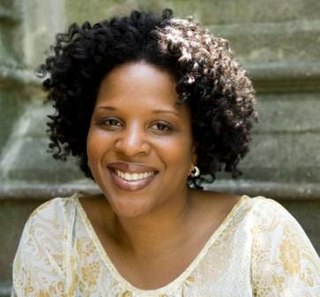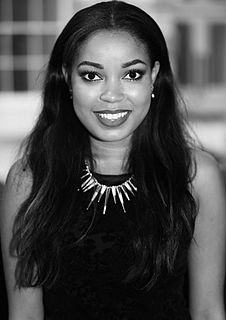A Quote by Tayari Jones
When you write a novel, you make other people see your imaginary friends.
Related Quotes
I started to make a joke that I had an imaginary friend underneath the let-out couch named Binky. I would never talk to him; I would only use him as entertainment for other people. I knew they thought that children had imaginary friends, so I was like, "I don't really believe in imaginary friends, but I want to feel like I do." I used to make a joke, "My imaginary friend Binky says this," because I knew it would get a laugh out of them.
Objectifying your own novel while writing it never really helps. Instead, I guess while you're writing you need to think: This is the novel I want to write. And when you're done you need to think: This is what the novel I wanted to write feels like and reads like and looks like. Other people might call it sweeping or small, but it's the book you chose.
Be an unstoppable force. Write with an imaginary machete strapped to your thigh. This is not wishy-washy, polite, drinking-tea-with-your-pinkie-sticking-out stuff. It’s who you want to be, your most powerful self. Write your books. Finish them, then make them better. Find the way. No one will make this dream come true for you but you.
I had an incredibly full life with my imagination: I used to have all sorts of trolls and things; I had a wonderful world around my toys and invented people. I don't mean I had imaginary friends; I just had this big imagination thing going on. I didn't need any imaginary friends, because I had so much other stuff going on.
For any artistic person who creates imaginary people, the art is like inhabiting the life and mind of a seven-year-old child with imaginary friends and imaginary events and imaginary grace and imaginary tragedy. Within that alternate universe, the characters do have quite a bit of free will. I know it's happening in my mind and my mind alone, but they seem to have their own ability to shape their destinies. So I'm not shooting for anything. If the characters are vulnerable it's simply because they're very human.
I don't make movies. I don't feel that I have to have artistic control. Part of this comes from the fact that the book lives on no matter what Hollywood does to your novel in terms of a film. Now, you try to be careful who you allow to do your film because nobody wants their novel to become a turkey movie. But, on the other hand, it is a crapshot anyway, because even the best people can make a bad film.
I think the people in your life are the people that - when you can make other people happy and you can give things to your family and your friends, you know, that's really obviously what life is all about. But it doesn't have to be children. It doesn't have to be a husband. It can be whatever you make it.
Religion is the yeast of death cakes. It is the most awful agent on a vulnerable mind. It's the refuge of alienated and lonely people. It's what people had before television. It yokes people together into an imaginary world. It is just people talking to their imaginary friends, at length. I wouldn't mind, but some of the people are world leaders.


































